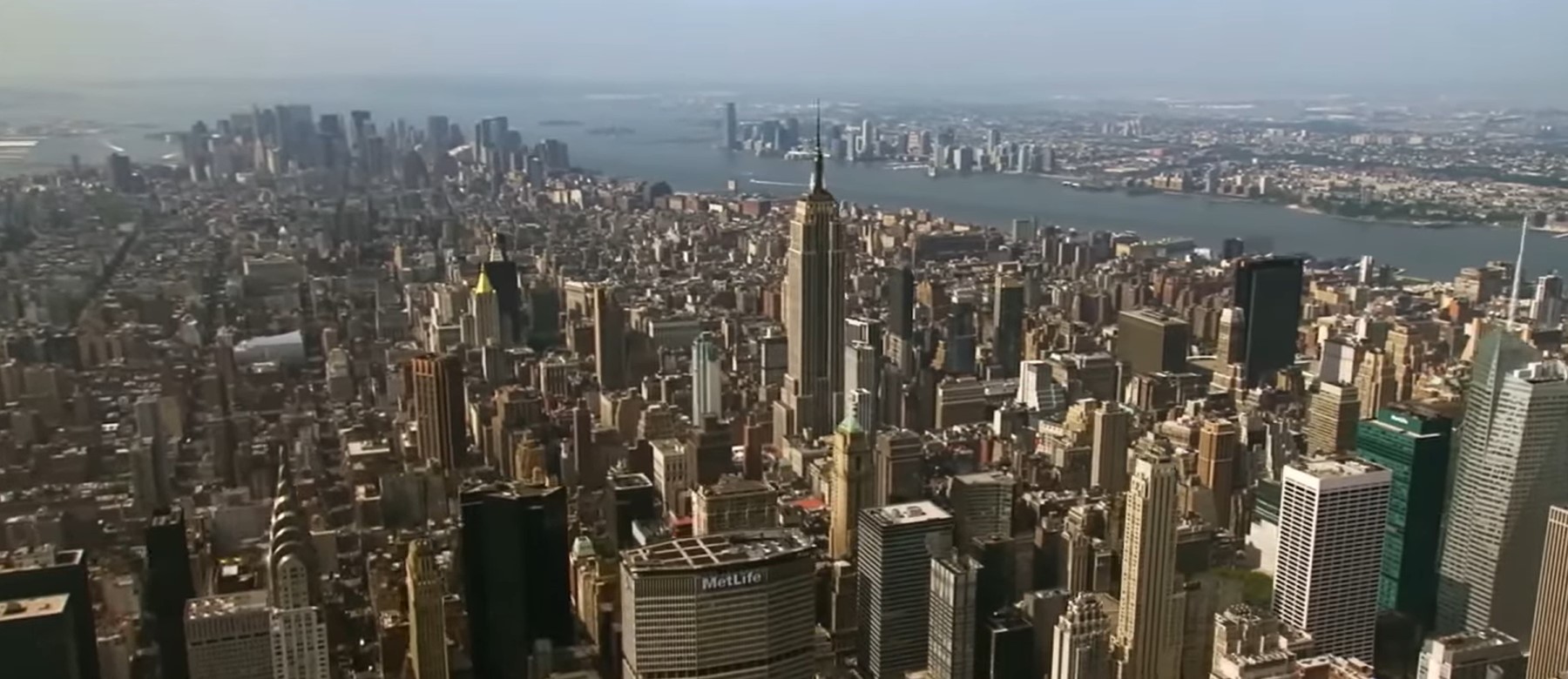Business
Global Markets Recoup Some Of Their Losses After Monday’s Sell-Off

New York City (Screen Capture/Smithsonian Channel)
Japanese stocks surged Tuesday, recouping much of their record losses from the day prior, with the U.S. market also primed for a comeback.
Tokyo’s Nikkei 225 rose 10.2% yesterday, clawing back much of its 12.4% loss from the day prior — its worst single-day retreat since the 1987 “Black Monday” crash, according to the Financial Times. Wall Street also looks poised for a modest recovery, with the the S&P 500 climbing 1.5% in morning trading after falling roughly 3% on Monday in what was its largest fall since late 2022.
European markets did not fare as well as their U.S. and Asia-Pacific counterparts, wavering between small gains and losses on Tuesday, with the region-wide Stoxx Europe 600 index down 0.1 per cent, the FT reported.
🇯🇵 Japanese stock market rebounds following yesterday’s bloodbath that saw biggest daily losses since 1987.
At the time of writing, key indexes the Nikkei 225 and TOPIX have gained around 10.2% and 9.3% each, clawing back a large chunk of the losses from the day before.🔥… pic.twitter.com/xxaVVcffZs
— Cointelegraph (@Cointelegraph) August 6, 2024
Monday’s global plummet in share prices came after disappointing July jobs numbers stoked fears of a slowdown in the U.S. economy, with the unemployment rate rising to 4.3% and the U.S. adding just 114,000 jobs, significantly less than the 175,000 jobs economists anticipated. An economic slowdown would mean rising unemployment, slowing wage growth and declining Gross Domestic Product.
The poor jobs numbers also heightened concern the the Federal Reserve may be waiting too long to cut interest rates after it decided to keep its federal funds rate target range between 5.25% and 5.50% at the Federal Open Market Committee (FOMC) meeting on Wednesday, marking the eighth meeting in a row where the FOMC has chosen not to adjust the rate.
The Fed has maintained an elevated federal funds rate in order to combat high inflation, which has remained persistently above its target of 2%. Prices have risen more than 20% since President Joe Biden took office in January 2021. High interest rates increase the cost of borrowing and reduce purchasing power for consumers and businesses alike, which can result in reductions in hiring and consumer spending.
Japan’s Topix index rose 9.3% on Tuesday while the U.S.’s Nasdaq Composite increased 0.9% in morning trading, according to the FT.
“Although the scale of the [share price] reduction was exaggerated, the reality is that there is a bit more concern about the US economy in the short term,” Charles Hall, head of research at British investment bank Peel Hunt, told the FT. “That will make people feel nervous about equities.”
(Featured image credit: Capture/Smithsonian Channel)
All content created by the Daily Caller News Foundation, an independent and nonpartisan newswire service, is available without charge to any legitimate news publisher that can provide a large audience. All republished articles must include our logo, our reporter’s byline and their DCNF affiliation. For any questions about our guidelines or partnering with us, please contact [email protected].

